Eephus: Eephemeral Warmth
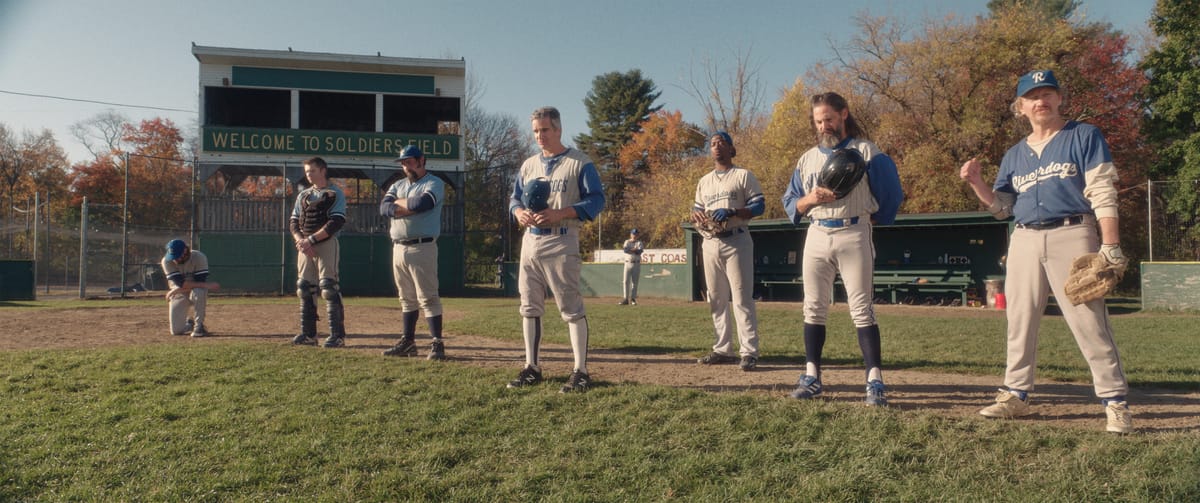
Why do they care so much? Don't have they more important things going on?
The brisk October air whistles through the falling leaves. Lush grass rolls gently like soft waves, the autumn sun hanging above the worn dugouts and a dusty diamond. Everything emanates a warm glow, softly reflecting the crisp air into an ethereal atmosphere. Ice envelops coolers of cold beer, sunflower seed shells and Cracker Jack crumbs litter the concrete. A game of baseball with an audience of two, all part of the same ritual of camaraderie and revelry. Dissipating, moving on. The end of an era.
That's what Carson Lund's Eephus is. A gentle eulogy for the passing of time, an ode to the good old days that basks in a comforting sort of present nostalgia, a liminal moment you desperately cling on to knowing it will soon escape, floating away for good. A local baseball field is closing down, soon to be torn down to make space for a new school, and its closure also marks the end of the small town rec league that uses the field for their low stakes weekend hangout games. So they've gathered for one final game, nine innings to send off years of cracking beers and hitting balls to pass the time, men of all ages from various walks of life, finding home and community within the sanctity of the dusty diamond.
Eephus is full of revelry and warmth but it is tinged with an extant sorrow, the kind of melancholy that's all too familiar. Like those final days of summer after graduation, basking in the sun and feeling that glow of freedom, tinted with the knowledge that soon life has to begin and everything will slowly shift and change. You watch your friends splinter off onto their own paths, equal parts proud and terrified of the future. Yet such is life, time marches on and everything changes, the elusive and mercurial motions of the dirt beneath our feet as we cross paths and depart ways, hoping to find meaningful bonds in those ephemeral instants when the stars align.
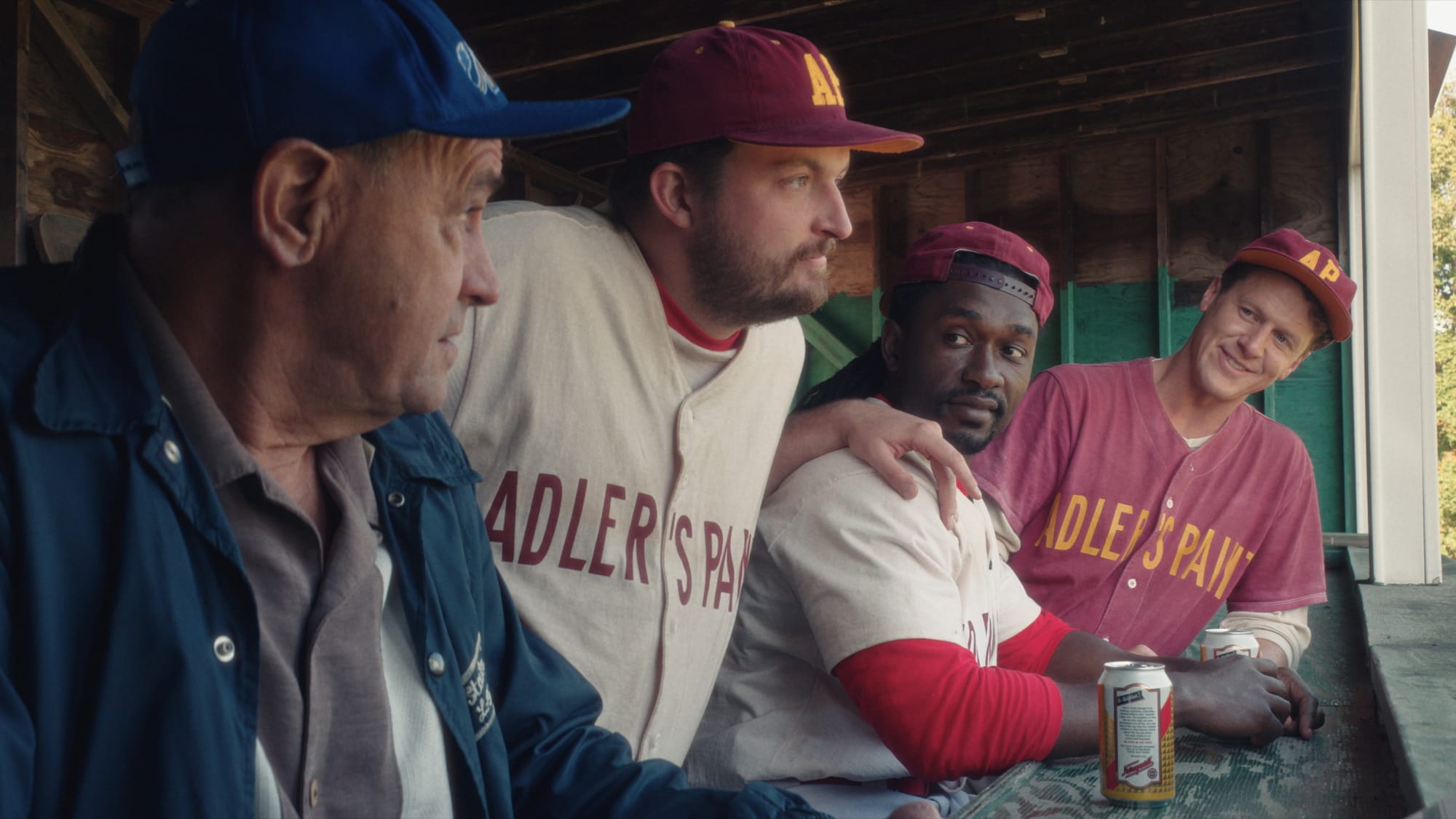
The stars are aligned in Eephus. It takes after the strange kind of pitch it's named after, a pitch that's uncharacteristically slow in a way that catches the batter off guard, a pitch that seems to elude time and space. The film, and its characters, move in much the same way - an extended instant with no set pace, no predictable arc. The film moves with no urgency, and its collection of misfit baseball players are determined to make their final moments of baseball together last as long as possible. The game should have ended hours ago and they find reasons to keep playing, keep delaying, to defy the natural stopping points in pursuit of an ineffable perfect day of baseball. You can throw an eephus and you can watch it meander peacefully through the sky, but eventually it crosses the plate.
The film's peaceful meandering is a consistent delight, a diverse cast of characters who all share the same endearing passion and wistful melancholy, all bound to the importance of the space the game offers even if they can't quite vocalize its importance. In this moment, there couldn't be anything more important - the diamond becomes home, a shared space of simplicity where everything else melts away. You can take that moment and you can draw it out, yearning for infinity, but the sun goes down and the erosive sands of time wash it all away. Those two teams, standing in the cool night air, bases lit by the spotlight buzz of humming truck headlights. All desperate to go home but also stubbornly refusing to leave, knowing it'll never be the same. It was never about baseball - but how can you not be romantic about baseball?


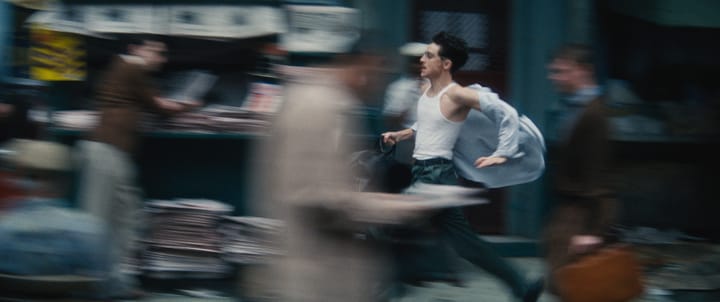
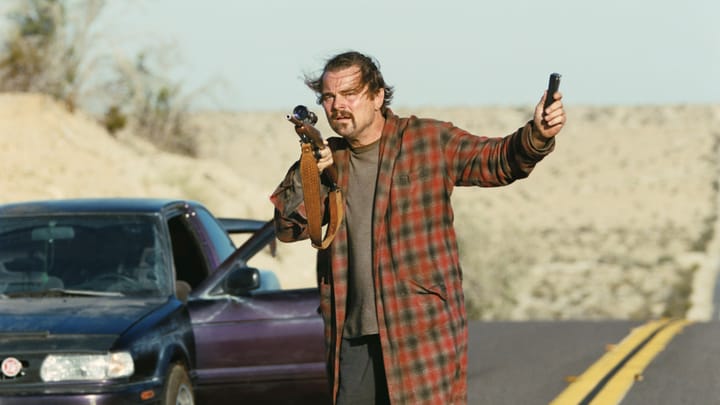
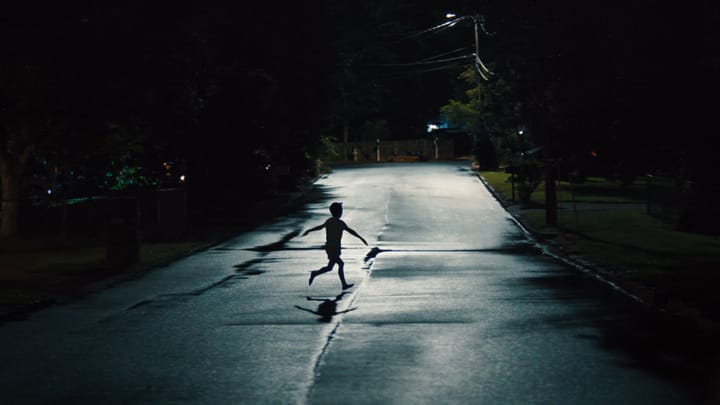
Comments ()